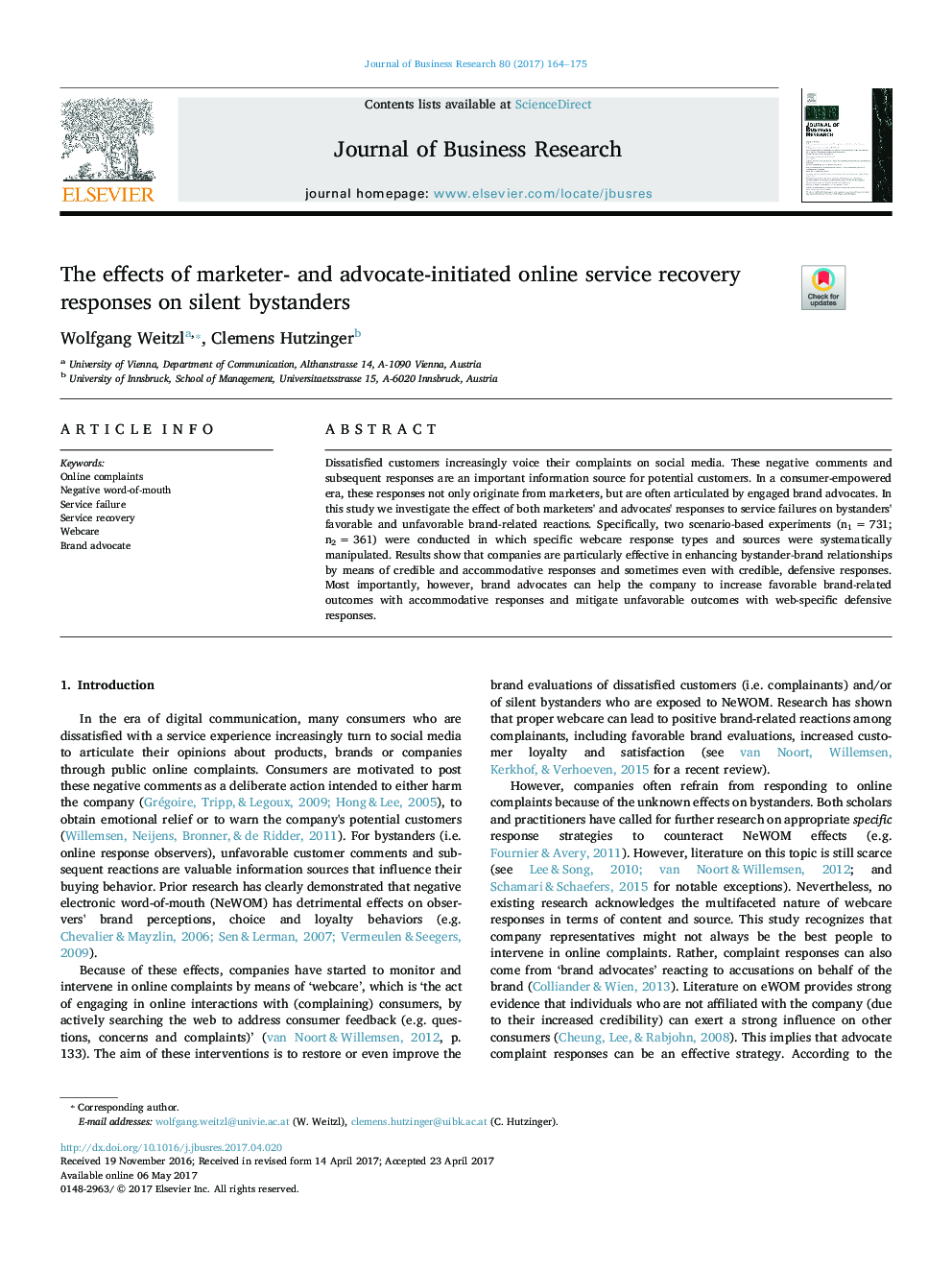| Article ID | Journal | Published Year | Pages | File Type |
|---|---|---|---|---|
| 5109331 | Journal of Business Research | 2017 | 12 Pages |
Abstract
Dissatisfied customers increasingly voice their complaints on social media. These negative comments and subsequent responses are an important information source for potential customers. In a consumer-empowered era, these responses not only originate from marketers, but are often articulated by engaged brand advocates. In this study we investigate the effect of both marketers' and advocates' responses to service failures on bystanders' favorable and unfavorable brand-related reactions. Specifically, two scenario-based experiments (n1Â =Â 731; n2Â =Â 361) were conducted in which specific webcare response types and sources were systematically manipulated. Results show that companies are particularly effective in enhancing bystander-brand relationships by means of credible and accommodative responses and sometimes even with credible, defensive responses. Most importantly, however, brand advocates can help the company to increase favorable brand-related outcomes with accommodative responses and mitigate unfavorable outcomes with web-specific defensive responses.
Related Topics
Social Sciences and Humanities
Business, Management and Accounting
Business and International Management
Authors
Wolfgang Weitzl, Clemens Hutzinger,
